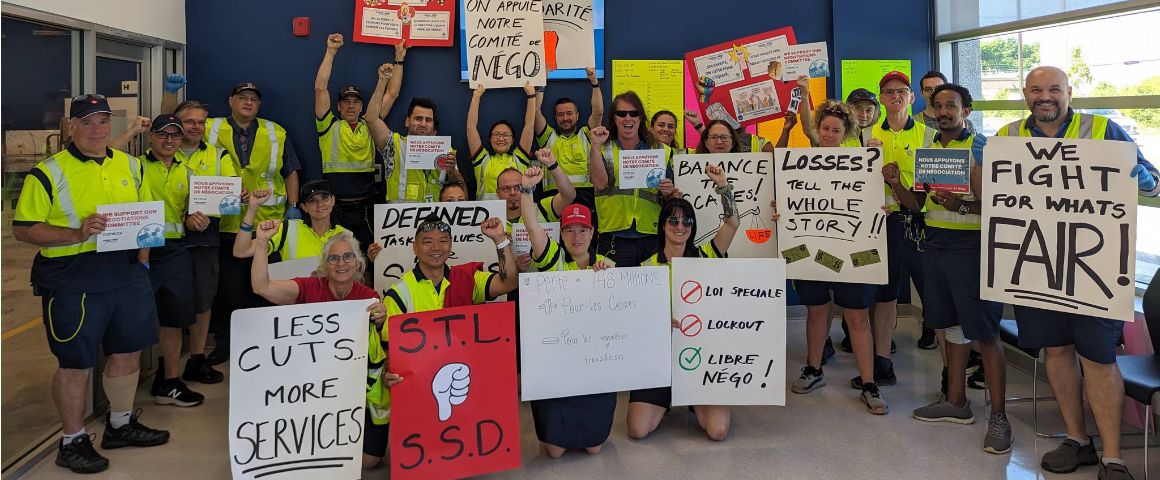William Shakespeare drew extensively on a couple of thousand years of ruling class mayhem intrigue and murder for his story line in dozens of masterful literary works. One can only wonder what he could have done with modern politics. Imagine Shakespeare as an observer to the Brian Mulroney/Karlheinz Schreiber handover of bags of cash money in hotel rooms, or the shift of Air Canada maintenance jobs to Israel a year after Stephen Harper (accompanied by an Air Canada CEO) made a state visit. Corruption, apparently, is the result of coincidence and even government inquiries have conveniently failed to find the relationship between the hand and the cookie jar.
Air Canada has been in and out of that cookie jar so many times it is just plain confusing. Trans Canada Airlines, TCA, was created by government request under the management of Canadian National Railways, then a Crown Corporation, in 1937. It morphed into Air Canada, still a Crown Corporation, in 1965. It was privatized in 1989 under the Mulroney government. To set the stage for this Mulroney in 1986 fired the entire management team and replaced them with his own choices. The backroom boys were now in the parlor, or the cockpit.
The 1988 Air Canada Public Participation Act (ACPPA) set out the conditions for the privatization of Air Canada. The dirty deed couldn’t be done without at least a modicum of recognition to jobs, language and national economies. The ACPPA ensured that Air Canada would continue to operate in both French and English by making the newly privatized corporation subject to the Official Languages Act (the OLA). A further provision required AirCanada to maintain its head office in Montréal, and operational centres in Winnipeg, Montréal, and Mississauga. The majority of its maintenance workers were in Montreal.
The privatization took place in 1989 with the government predictably absorbing large debt and selling for a bargain basement price, but that is another story. Because of the ACPPA Air Canada was subject to the Official Languages Act in its entirety. The Act compelled Air Canada not only to provide communications and service to the public in both official languages, but also to maintain a bilingual workplace. In addition, Air Canada is subject to provisions that ensure equal opportunities for employment and advancement, as well as a requirement that its workforce reflect the presence of both official language communities. The importance of this Act to workers, especially to Francophone workers, and their unions is apparent.
In 1968, when it was still publicly owned, Air Canada created Air Canada Technical Services (ACTS) a subsidiary under the ACPPA to handle its maintenance. By this time it had added maintenance workers in Vancouver to itsMontreal, Mississauga and Winnipeg facilities. In total more than 4000 highly skilled maintenance workers were involved, probably about 3000 of them in Montreal and all represented by the Machinists Union. By 2003 the new owners, venture capitalists and number crunching corporate plunder specialists, had managed to drive Air Canada into Bankruptcy Protection, which put restructuring in the hands of the courts and opened up the opportunity for a cabal to gain control under the umbrella name of Ace Aviation Holdings. In 2005 Ace Aviation holdings moved its maintenance ACTS subsidiary into membership with a group of international companies called Airbus MRO Network. This was still under, and in compliance with the ACCPA; the jobs were still protected in Canada and the Official Languages Act was still in force. ACTS was still owned by Air Canada but taking part in a consortium. When the name “Airbus” comes up the image of Mulroney and bags of cash appropriately flashes on the screen.
ACTS is by 2005 a separate but wholly owned division of ACE Aviation Holdings/Air Canada and a member of a consortium called Airbus MRO Network. The stage is set for an end run around Parliament and the ACCPA; the Machinists Union is uneasy and the corporate chess players are ready to move some pieces.
In 2007 ACTS purchases 80% of the shares of an aircraft maintenance company called AEROMAN, located in San Salvador and doing maintenance for the TACA Airlines. The Machinists Union sounds the warning bell. This could lead to shipping Air Canada maintenance jobs offshore, in violation of ACCPA. Within months ACTS is acquired by 70% US investors and changes its name to AVEOS. Air Canada acquire a minority interest in AVEOS and AEROMAN is separated into a stand-alone company.
In 2011 about 2600 Air Canada maintenance workers are transferred to AVEOS, despite a legal challenge by the Machinists Union to prevent this transfer. Slowly but surely Air Canada started taking maintenance work away from AVEOS and sending it to Germany, China and El Salvador. About 90% of AVEOS work was from Air Canada, and its disbursement offshore, in direct violation of ACPPA, caused AVEOS to file for bankruptcy in 2012 and put 2600 workers on the street. In January 2014, the Air Canada CEO accompanied Stephen Harper on the Prime Minister’s official visit to Israel. A year later, Air Canada signed a maintenance deal with Israel Aerospace Industries, a company wholly owned by the government of Israel.
The Attorney General of Canada filed a law suit against Air Canada for breaching the ACPPA, and in February 2013 the Quebec Superior Court found Air Canada guilty of violating the Act. In December 2015 the Quebec Court of Appeal upheld the decision. The governments of Quebec and Manitoba joined in litigation against Air Canada with the two Quebec Court decisions under their belt, but in February 2016 the Quebec government dropped their litigation when Air Canada announced it would purchase 45 planes from Bombardier. The Manitoba government dropped its litigation when Air Canada promised to expand jobs in Manitoba.
Georges Bujold of the Machinists Union, with the wisdom gained from many battles, warned his members that Air Canada would drag the issue to the Supreme Court and it could take years for a decision. The question on everyone’s mind is, what will the Federal Government do? Will they modify the Act? Well here’s the answer and it didn’t take years.
On March 24, the Federal Minister of Transport, Marc Garneau, filed a bill that modifies the ACPPA and eases Air Canada’s obligations in respect to jobs and conditions of work that the airline previously had to maintain inQuebec and elsewhere in Canada.
Previously in February, in a letter to the Minister, Dave Ritchie, Vice President of the Machinists Union had this to say; “This would allow Air Canada to circumvent the recent decision of the Quebec Court of Appeal on this issue, based only on Air Canada’s vague promise to have some of its maintenance work performed in Quebec at some point in the future, if it proceeds with its order to purchase Bombardier C-Series aircraft.” Absolutely correct, but correct, militant, vigilant and tenacious the Machinists have been for decades in defense of their members and parliamentary democracy.
The Tories refuse to enforce an act of Parliament and the Liberals decide that the violations can be handled by conveniently changing the ACPPA to bring it in line with the corporate agenda. Apparently the rule of law is a casual affair for the smiling young Trudeau, and the dispersal of Canadian jobs to El Salvador, Israel and Europe is part of the new agenda. TPP anyone?



